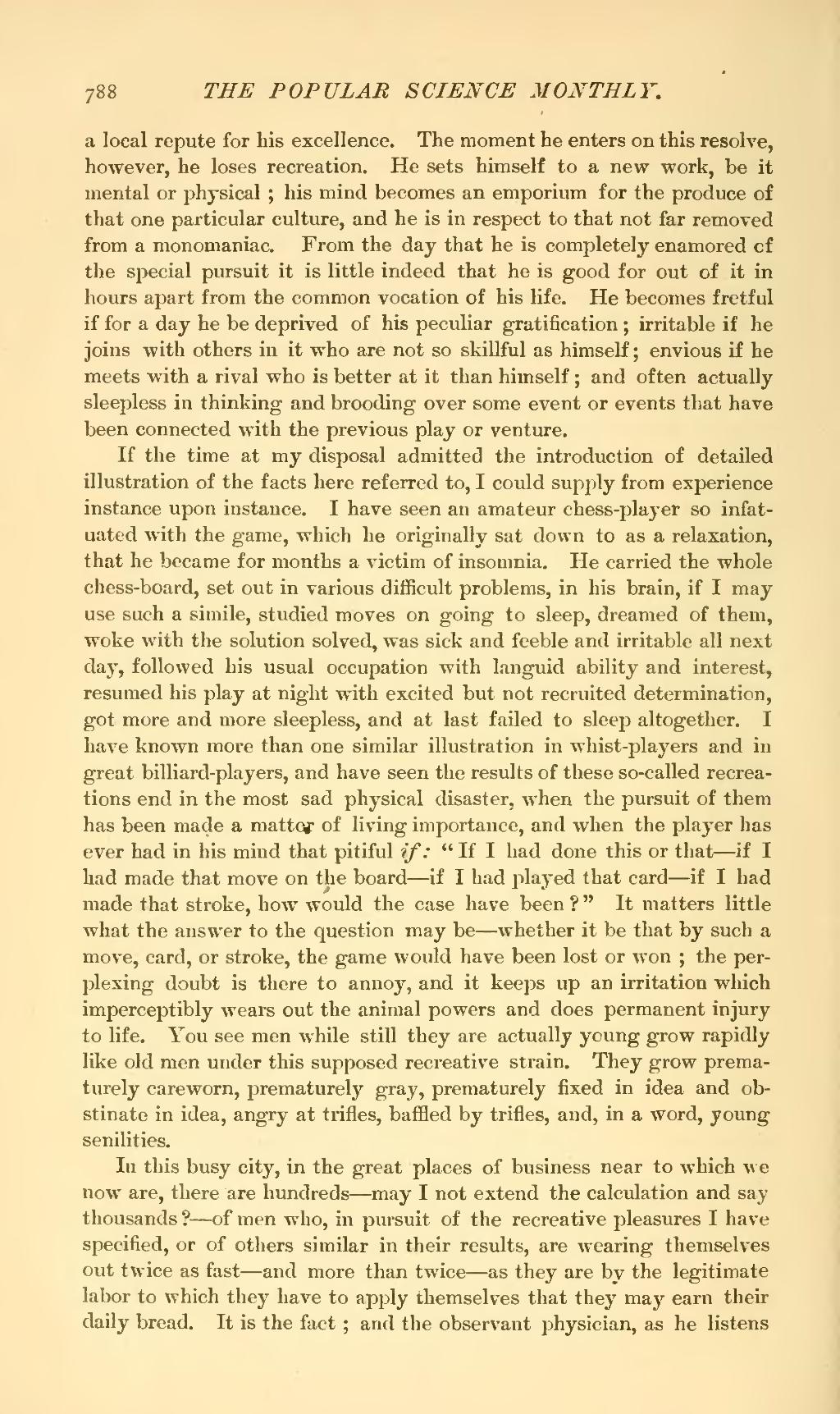a local repute for his excellence. The moment he enters on this resolve, however, he loses recreation. He sets himself to a new work, be it mental or physical; his mind becomes an emporium for the produce of that one particular culture, and he is in respect to that not far removed from a monomaniac. From the day that he is completely enamored of the special pursuit it is little indeed that he is good for out of it in hours apart from the common vocation of his life. He becomes fretful if for a day he be deprived of his peculiar gratification; irritable if he joins with others in it who are not so skillful as himself; envious if he meets with a rival who is better at it than himself; and often actually sleepless in thinking and brooding over some event or events that have been connected with the previous play or venture.
If the time at my disposal admitted the introduction of detailed illustration of the facts here referred to, I could supply from experience instance upon instance. I have seen an amateur player so infatuated with the game, which he originally sat down to as a relaxation, that he became for months a victim of insomnia. He carried the whole chess-board, set out in various difficult problems, in his brain, if I may use such a simile, studied moves on going to sleep, dreamed of them, woke with the solution solved, was sick and feeble and irritable all next day, followed his usual occupation with languid ability and interest, resumed his play at night with excited but not recruited determination, got more and more sleepless, and at last failed to sleep altogether. I have known more than one similar illustration in whist-players and in great billiard-players, and have seen the results of these so-called recreations end in the most sad physical disaster, when the pursuit of them has been made a matter of living importance, and when the player has ever had in his mind that pitiful if: "If I had done this or that—if I had made that move on the board—if I had played that card—if I had made that stroke, how would the case have been?" It matters little what the answer to the question may be—whether it be that by such a move, card, or stroke, the game would have been lost or won; the perplexing doubt is there to annoy, and it keeps up an irritation which imperceptibly wears out the animal powers and does permanent injury to life. You see men while still they are actually young grow rapidly like old men under this supposed recreative strain. They grow prematurely careworn, prematurely gray, prematurely fixed in idea and obstinate in idea, angry at trifles, baffled by trifles, and, in a word, young senilities.
In this busy city, in the great places of business near to which we now are, there are hundreds—may I not extend the calculation and say thousands?—of men who, in pursuit of the recreative pleasures I have specified, or of others similar in their results, are wearing themselves out twice as fast—and more than twice—as they are by the legitimate labor to which they have to apply themselves that they may earn their daily bread. It is the fact; and the observant physician, as he listens
